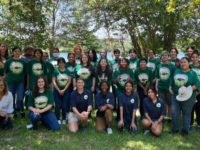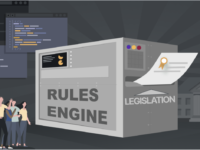The Future Tech Challenge (FTC) is a pilot initiative led by DPER to connect and collaborate across the wider ecosystem, and engage in transformative innovation by experimenting with, and applying new technology to address pressing public sector problems and opportunities that deliver improved services to the public. Drive innovation using emerging technology, enhance collaboration, meet National strategic priorities, generate knowledge & learnings and develop prototyped solutions.
Innovation Tag: Public Service Delivery
Connectoo Training aims to reduce the digital divide in Belgium by training public officials to better take into account citizens on the digital fringe. Accessible free of charge and 100% online, connectoo trains and certifies public agents in the challenges of digital inclusion and in the reflexes to adopt to help the most vulnerable citizens with online administrative procedures. Together, we are reconnecting digital public services to citizens. In 2022, the digital divide remains more than…
Citizens' assemblies (CAs) were incorporated in the new Law on Municipalities in 2005. As an opportunity to strengthen participatory processes, and to improve participatory decision-making methods at local level, Participation Task Forces (PTFs) were established. The innovative nature of the PTFs is that for the first time elected municipal councillors, appointed municipal officials, and representatives of CAs worked together on developing participatory policy proposals for their municipality.
Public healthcare in Serbia is transformed through innovative use of mixed reality technology powered by Artificial Intelligence, that increased efficiency and quality of healthcare, minimized risks and efforts, and optimizes procedures. Through remote collaboration, doctors have the same insight into patient’s condition without the need of physical presence, enabling joint real time inputs and medical interventions with experts from anywhere, as well as remote education for medical students.
The Austin Civilian Conservation Corps (ACCC) began as a pandemic response program to help residents earn income and access green careers, and has evolved into a leading model for equitable, climate-focused workforce development. The ACCC, a collaboration with 10+ City departments and multiple community partners, has provided over 125 living-wage opportunities with supportive services, training, and career pathways for Austin’s underserved residents, and is actively shaping the green economy.
The General Hospital Asklepieio Voulas has developed an exercise-based cardiac telerehabilitation program in order to increase the participation of eligible patients in cardiac rehabilitation services. Through this, Government and cardiovascular patients will benefit since participation in a CR program can reduce the risks of death and hospital readmissions. To our knowledge this is the first attempt to develop a telerehabilitation program offering a structured, real time, supervised exercise.
The Australian Government - Dept of Finance sponsored a Proof of Concept (PoC) that looked at how Rules as Code (RaC) might be provided as a shared utility that can be used to deliver simpler, personalised digital user journeys for citizens. RaC is the process of taking legislation and regulations and turning them into machine-readable code. It provides many benefits to citizens and government, including greater reuse, less duplication, greater transparency and accessibility of rules.
Madrid Mobility 360' is a mobile application that allows citizens moving around the city and calculates the most efficient route between all modes of transport in the capital, both public and carsharing or bicycles. It includes a powerful route planner, which allows estimating current and future journey times, and provides the capacity on a specific bus. The app allows payment for various methods of transport and reports the CO2 emissions generated.
Case Study
Artificial Intelligence (AI) for Classification of Requests at the Citizen Services Desk.

The initiative is about the automation in the classification of service desk requests using AI techniques such as Natural Language Processing and open source tools to reduce the costs, optimize resources and improve response times in benefit of the citizens and the public institutions as service providers. The solution is developed by AGESIC (E-Government and Information and Knowledge Society Agency); this is an algorithm based solution in charge of classifying topics on different categories of…
Customer-oriented public services direct the authorities to look at citizens from their own responsibilities without taking into account a citizen’s overall life situation. A human-centric and life event -based operating model supported with the life-event service ecosystem technology enables the authorities to produce value directly in people's life events through the cooperation of other service providers in a timely and proactive manner.




